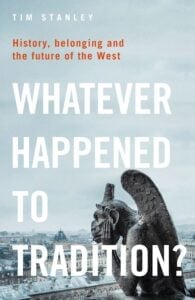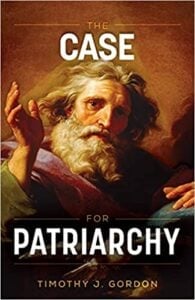
Whatever Happened to Tradition? History, Belonging and the Future of the West, by Tim Stanley (Bloomsbury; 272 pp., $28.00). National and religious traditions have been under constant cannonade since at least the Enlightenment, although Catholic convert Stanley would argue that seeds were sown earlier. Either way, centuries of ideological incoming have left Westerners with cultural post-traumatic stress disorder.
In this often epigrammatic apologia for inherited—and invented—wisdom, Tim Stanley shows that, contrary to caricature, traditions are never immutable but are able to evolve even while standing somehow above time. Traditions help assuage deep disquiets, which is why the cathedrals of Europe still stand and why there are still Jews and Yazidis, despite everything. Nostalgia, Stanley notes, “nourishes our very human need for roots and belonging, and it provides respite from modernity’s propensity for change and aggressive individualism.”
Traditions can also be unexpectedly inventive, emerging spontaneously and embedding themselves easily in the everyday. Even those who publicly reject traditions often unconsciously emulate them, seeking comfort and community in a coldly uncaring cosmos: consider atheist French revolutionaries installing a goddess of Reason at Notre Dame, or post-Christian white liberals having Low Church-like ecstatic experiences at Glastonbury.
Not all traditions are worthwhile, but neither are they intrinsically oppressive. Because they rest on popular assumptions rather than political contingencies, they are largely self-policing, at worst authoritarian rather than totalitarian. If at times amusingly (or irritatingly) complacent, traditions are at least predictable, unlike ever-changing liberal moral codes. Even absolutist kings felt constrained by moral laws or national customs that predated royal prerogatives, and whenever they transgressed, they aroused powerful opposition rooted in real precedent.
Stanley was once a Marxist and still empathizes with egalitarian impulses, which he now sees as deriving from Christianity. He enlists Marx as an anti-modern, is deeply critical of big business, and says conservatives should pursue the common good rather than the free market. He remarks almost ruefully that the logical conclusion of liberalism is its death, because it depends upon the traditions it seeks to subvert.
On what can be done, he is quieter. “The current year” is here, and we cannot change that by fetishizing earlier eras, all of which had problems of their own. Instead of complaining about the culture, we need to start remaking it for all the “current years” to come.
(Derek Turner)

The Case for Patriarchy, by Timothy J. Gordon (Crisis; 272 pp., $21.95). While some conservatives welcome trans-exclusionary feminists as allies in the struggle against LGBTQ radicalism, Timothy Gordon insists that feminism itself initiated the conflation of male and female identity, and that it calls for us to reconsider egalitarian assumptions. While Breitbart News celebrates the Trump-era decline in women’s unemployment, Gordon wonders who is tending to the children.
Or, for that matter, who is even having children? “Downstream of the sex revolution and female-run households, the casual observer notes that families in the West have grown nonsustainably small,” Gordon writes. Feminists may deem the resulting demographic crisis in America and Europe a small price to pay for birth control pills, but the rest of us may reflect upon one of Gordon’s key claims: that Western civilization is in decline because of the collapse of patriarchy.
Transgenderism is not the only radical movement intertwined with the feminist project. Plenty of evidence connects feminism and socialism, however much the pragmatic Lenin might have restrained Soviet radical feminists. Gordon notes that in 1932, the head of the American Communist Party proclaimed that “socialism liquidates the drudgery of housework” by “freeing the woman.” And the gospel of first-wave feminism—the Declaration of Sentiments—was published in 1848, the same year Europe was rocked by socialist revolutions. Refuting the notion that feminism used to be sane, the Declaration appropriates Jeffersonian rhetoric to claim that “the history of mankind is a history of repeated injuries and usurpations on the part of man toward woman, having in direct object the establishment of an absolute tyranny over her.”
Perhaps more culpable than transgender activists, feminists, and communists, are religious leaders who have proven too timid to preach the truth. Useful idiots within the Church have undermined patriarchy “by muting or editing all the countless Christian teachings reinforcing it,” Gordon writes. Whether his own program for restoring patriarchy is realistic, he is surely right to highlight the disingenuousness of “Christian feminism.” Anyone who takes family values seriously must meditate upon hard teachings, such as Saint Paul’s injunction for wives to “be subject in everything to their husbands.”
(Jerry Salyer)
Leave a Reply